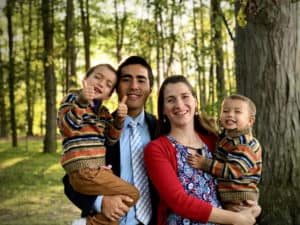
E221- Sunny from FamVestor
Fuller Bio Here: http://famvestor.com/bio Sunny Burns is 29 and works Full-Time as a Project Engineer for the Department of Defense. He is happily married with
Pro Tip: Timestamps below are clickable. Click on the time below in the brackets and the audio will start playing at that part of the show.
Need a financial checkout? Head on over to chainofwealth.com/chat and let’s help you manage your money better! Only $75 for 30 minutes deep dive!
Denis O’Brien [0:38]
Episode 223 Hayk Tadevosyan. Hey money clan a warm welcome to the Chain of Wealth podcast. I’m your host, Denis O’Brien.
Katie Welsh [1:18]
And I’m Katie Walsh.
Denis O’Brien [0:50]
So Katie, awesome time catching up with Hayk today. He was on the podcast just over a year ago.
Katie Welsh [0:56]
Yeah. And I love talking to Hayk because he is so grounded and he just puts things so easily to understand.
Denis O’Brien [1:4]
Yeah. Kate I have to say that his principles, and his four pillars really are critically important. And I really think that regardless of where you are in your life, you can get a lot out of this episode by focusing on these four pillars,
Katie Welsh [1:17]
Right.
Denis O’Brien [1:18]
Anyway, before we dive into today’s show, if you guys haven’t already, let us know what you’re up to on Instagram. It’s @chainofwealth on Instagram Alright Kate, you ready to dive on in?
Katie Welsh [1:28]
Yep.
Denis O’Brien [1:28]
Fantastic, let’s do it.
Hayk Tadevosyan is a proud father, husband, Deacon, athlete and entrepreneur, passionate about serving his community and inspiring others to reach their goals. Hayk owns and operates a thriving insurance and construction business that he built from scratch. With the years of coaching and developing his top notch teams. He has developed great joy in coaching and consulting other business owners, professionals, aspirants and team members on replicable sale systems, processes of entrepreneurship and personal development.
Welcome Hayk.
Hayk Tadevosyan [2:0]
Good morning. Thanks for having me on your show. Very excited.
Katie Welsh [1:51]
Yeah. So we were talking a little bit before the show. It’s been roughly about a year since you’re on before talking about your business. What have you been up to?
Hayk Tadevosyan [2:0]
You know, same old other than the fact that we finally published the book, I decided to take the self publishing route, which I’m still learning, which was a very, very big learning curve for me. I was very blessed to approach a publishing company and they do something about that, I think from statistic points, one of their sales reps told me that they get about 10,000 books submittals a year, they approve about 100. So once they look at the manuscript, I was blessed that they accepted the book to actually to the publishing for me. But once I read the contract, I got kind of scared off, and I didn’t want anybody else having ownership. And it seemed like they were going to take it the direction they wanted. So I ended up turning that down, I took the much more expensive and long term route of self publishing. Finally, we got that done. So that’s a big item checked off my list. But other than a book publishing everything else been very stable, same health goals, family, still the same two boys, three and five. Businesses have been great. We had a thought I want to say it’s going to be another record setting year. And I’ve been saying that for nine years in a row since we opened up the business nine years ago. But other than that fairly stable, and I am enjoying the stable life more than always having something new, which was probably the story of my early 20s life.
Denis O’Brien [3:7]
Wow it sounds like you really have been busy and a big congratulations on your business, beating goal every year that’s really great news. It’s good to hear when people are doing well.
Hayk Tadevosyan [3:16]
Thank you, Denis. Thank you likewise, and I’ve been hearing you guys have been having a lot of changes as well.
Denis O’Brien [3:21]
Yeah, it’s been a tornado the side but uh, yeah, like we’ve recently got married and you know, enjoying the fruits of being newlyweds and having just a lot of fun and debt free and becoming debt free as well. I think the last time we spoke, we still had quite a bit of debt that we were paying off. So yeah, it’s been awesome. A lot of change.
Hayk Tadevosyan [3:40]
Awesome, awesome. Double congrats to you guys. That’s That’s great news.
Denis O’Brien [3:43]
Thank you. Appreciate it. So I wanted to chat to you a little bit about what you believe is the truth behind the American dream and you know, the American dream. A lot of people sort of envision You know, you’re in this beautiful nice big house white picket fence. 2.3 kids, you got a Labrador in the background, Yeah. So what do you believe is the real truth behind the American dream.
Hayk Tadevosyan [4:4]
It took me a while to discover the truth. I want to say about three years ago when I made the commitment of sit down and write and I didn’t really write my book to actually share with anybody it was more of a diary. And I said one day I’m going to sit down and I’m going to get all my thoughts on paper. It was a point in my life where I felt like I wasn’t one of the happiest and most successful people even though I wasn’t the richest. I wasn’t the healthiest. I wasn’t, you know, didn’t have the biggest family or most amount of friends I have, you know, good friends that I can count on one hand who are what considered true friends. I’ve, you know, I’m not you know, I’m not some guy with a private jet that financially I’m financially independent. I don’t have million kids. I got two quality children. I have a beautiful wife good relationship with her. And I’m not some kind of a, you know, Olympic level athlete, but I can run marathons and triathlons and those things really keep me sane. And I said you know, let me just put this on paper because I have this weird mind that keeps me up at night. I wake up to three in the morning, four in the morning with some random thoughts and ideas and philosophies and actually emails those thoughts to myself. In the morning, I’m like, let me just save this email, I archive it, archive it, and one one day I’m like, let me just get all these notes I’ve been taken for years. Let me take all these thoughts and let me just write them down. And I started writing them down after about few months of writing, I realized I’ve got some good quality meat on paper, started editing it further, further, about six months later, I pasted everything I’ve had on my phone into a Word document and I had about 100 pages, 180 pages of files. And I thought to myself, this could be actually a really good book. Now, when I initially wrote this book, I had a theory, right? So my theory was if you can balance finances first, which is the American dream, right? You come to this country, so you can actually have a financial freedom. Now what I didn’t realize nobody really tells you how much hard work it is because we know you work hard, you get paid, right, but I didn’t know how hard you have to work. And the second piece that I you know, a lot of us foreigners to understand about the American Dream is mentorship. We come here and we try to figure this out on our own, whether we’re working in construction or whatever it is, right. But I didn’t I didn’t know how important mentorship is because it can save you 10 20 years your life because some people spend so much time being the hardest working farmer in the desert where they only grow like half a tree, where you can be an average working farmer in a very wet soil, you know good ground and you can grow in the entire forest. So that was another piece of the American dream that I needed to understand. So my philosophy was you take care of the finances first, which is the beginning part of the American dream. Once you get the finances you can actually have time to you know, for me in business, I can staff properly I can have some freedom for myself. And now I can spend that time you know, on certain passions, which for me, I was bringing marathons fitness triathlons into my life. And once I brought fitness back, you know, that brings health and mood and energy with now I’m spending time with friends family, you know, and then the last piece is now I’m spending time looking for my you know, partner, which is creating a family so it was finances, second was fitness, third was friendship, and fifth was family. So I came up with the four F’s, right. I wrote about it and and when I got to the end of the book, that specific pattern of four F’s Which to me was the American Dream made so much sense that I disagreed with myself. And I thought to myself, well, why am I disagreeing with this? I just spent like two years writing. So I call up a couple of my friends that have PhDs doctors and ask them the same question. I said, You You did a dissertation, right? You had to write a thesis, you have to defend the thesis in front of a board can ask you this question. You know, if when you did come up with your thesis, did you ever disagree with it? And a lot, and every single one of them said absolutely, because that’s one of the reasons why we’re made to write thesis because you think you might have a good theory, but unless you write it on paper, knowing that people are going to read it, and they’re going to question you, when you spend a lot of time in front of this paper, you tend to make more sense of it. And my thesis changed to there is no specific order. Everybody works on that pillar, the one of the F’s in order that you’re insecure about the most. And what I mean by that if you have a monkey on your back, that tells you you’re out of shape, you know, you’re unhealthy, you’re not eating well. You got to take care of the monkey first because if there’s enough of Monkey on your back reminding you their health is poor. That’s going to put you in a worse mood at work, worse mood at home, worse mood with your friends. Right? Or if there’s a monkey on your back telling you marriage is not good, then it’s going to remind you how bad your marriage is you can take that with you at work is going to impact your finances your mood there, so your production numbers are not going to be the same. Your moods not gonna be the same, right? So we always take care of what we lacking the most. So to me, I was insecure about money my entire life. I was raised very poor thinking, I’m going to move to America. I’m going to make money everything’s going to be okay. Well, in my early 20s, I worked my butt off I was probably one of the hardest working people I’ve ever known. I was working 12 14 16 hour days I was sleeping on my chair in my office and I figured out money really early on my early 20s I was already six figure kid. And when I got my first six figure statement from my accountant saying hey, congrats like you just, you know, crack your six figures this year. It was one of the most disappointing experience of my life because I was waiting for that moment to change everything for me to feel contempt, but I wasn’t right. So later when I balanced everything out, even though my order was finances first fitness second, friendship third, family fourth. And now I realize there was no order, I was giving wrong advice to people, I was telling them figure out what you’re lacking the most work on that first and then balance. Once you achieve the four, now you’re working on, you know what’s lacking, because there’s never going to be perfect four F’s, there’s always going to be one thing that’s going to dominate the other. So you take time off one and work on the other, and actually more, it gives you acceptance of imperfection because if there’s no perfect balance in it, as well, so to me, to long answer to a question, Denis, I think the American dream comes in that balance of what you are lacking the most work on that first and balance moving forward.
Denis O’Brien [9:47]
So in terms of balancing them, I know you said that there’s no particular order that any of them really go in but do you find that people typically will focus on one or two of them more and they sort of neglect the others? And if so, like, how does one sort of self improve to sort of try and become more balanced than all of them instead of just focusing on one or two, like, say, for example, maybe you’re strong in fitness and family, but your finances and friendships are completely out the water. Do you find that people will try and stick to what they know? And they don’t really like to bring about change? Or do you think that, you know, like, there’s this moment that people need to realize that they’re lacking in one or two of the others?
Hayk Tadevosyan [10:26]
Oh, absolutely. That’s I agree with you people do tend to stick to one or the other. I think they get obsessed with perfection. And what I mean by that is, they get too caught up into the one of the F’s for You know, I have few peers in my life who are so caught up with the financial aspect of it, that they’re thinking by just trying to grow their business that’s going to resolve a lot of their problems. For example, at the very beginning phase of my business where I get financially comfortable, but I knew that’s not where I want to be. I wanted to be a lot more right. I wanted to have more income so I can employ more people, I can have a bigger business, I can have a bigger home, a nicer car, you know, I can live the further dream of the American dream. But there’s a certain point where money was comfortable and what I mean by that is not to get obsessed by getting all these bigger and better things in life, but I’m talking about comfort, comfort was you don’t have to look at your bills anymore every month, you’re have someone have a good investment plan where you know, automatically it’s happening whether if it’s an investment property or if it’s a, you know, an IRA, you’re contributing to your 401k, whatever it is, right? You get comfortable to the point where, you know, I can take some time off and work on the next thing. The next thing actually helps the financial tank to get better. And what I mean by that is, I finally started taking gym breaks from 3 to 6pm. Because my work hours for 9 in the morning to 9 at night, 12 hour days. from 3 to 6 I started taking time off and at the very beginning phase of my business I can gain good amount of weight I get out of shape. I don’t you know, I didn’t drink beer. I look like I had a beer belly. From 3 to 6. I started taking gym breaks, lifting, running, you know, preparing for like Spartan races and marathons and that kind of stuff. And with time I got very fit. And I noticed that rubbed off on my team. So my team that worked for me, they got curious about wow this guy in six months got in really good shape. What if we try and all of a sudden they started trying, they started running Spartan races with me and they start signing up for endurance races and lifting and actually started paying for the gym membership. And I noticed the financial tank and the fitness tank were working together. Even though I thought I had to do more of one thing to get more of that one thing. It was a complete paradox because I had to do more of the other thing to get this other thing to go up. Because my fitness tank influenced my team to get more fit and they were more fit, they worked better. And they were more motivated and they were more positive my team grew, our production grew, my time spent in the business decreased financially, I start making more money. So that was my understanding of me trying to do more of that one F wasn’t more of that one F it was me spending more time on the other one. Now with more time in fitness, I realized I’m in better mood, right? So the better mood brought more relationships, more people that wanted to do business with me more people in my circle of influence that I’ve been interacting with whether it was professional athletes, whether it was professional, you know, attorneys or mortgage advisors, people that were referring business, they want to do more business with me because now I was a guy in better shape better mood which attracted the better person in my life, ended up becoming, marrying and creating a family with right so, and I think that’s the biggest misconception if you don’t physically try to pull time away from it, less is more, right? So it complements to the other half. So instead of getting obsessed about doing that one thing over and over and over, did this the very beginning part, there’s so much discomfort in moving yourself away from it and, and taking time away from that one baby you’re creating that actually it impacts it makes it better, right. So my advice to anybody is if you’re obsessed with just one part of your life, whether it’s making your relationship better, or your health better or your relationship with friends, or your business, is take a little bit of time away from it, work on something else, I promise, even though you’re spending less time doing that one thing that will improve dramatically through your indirect involvement with your other passions.
Katie Welsh [14:9]
It’s incredible how things like that It can have a chain reaction where if you are working all the time and then I know especially Denis and I, we’ve talked about this before, when we’re working all the time and we’re not making time to go to the gym, we start to feel really sluggish and we don’t have the energy to pull those long 12 15 hour days all the time. And then the second we start taking like a quick hour a day gym break that it’s like you come back and you feel invigorated and you have more energy and you think clearer and everything. It’s really, I think, interesting how there’s such a chain reaction for that sort of thing.
Hayk Tadevosyan [14:47]
Yeah, I call it the caar acronym I referenced this in my book a lot. It stands for C A A R. Clarity leads to action, action leads to activity and activity leads to results. Unless we are clear about what we’re really seeking. There is no clarity, right? If you clear about something that leads to action, which you start doing something right, Action leads to activity, which is the repeatable process that you continuously do, and as long as you stick to the process results will follow. So at this point, you know, to me, I was very clear about what the American dream was a certain point in my life, led to action, action led to activity and activity led to results. And the thing that formula works really well in most things, but a lot of people are lacking the clarity, which is the very crucial first step, less is more, but again, you still have to put in a lot of time to figure out what what that less means.
Denis O’Brien [15:34]
I think that also comes down with that basic 80 20 principle. So you can achieve, like 80% of the result, but with doing 20% of the work, and, you know, I think that that talks to your pillars exactly. Because, you know, like, it’s like you said, you don’t want to just focus on one thing, you want to get the most results out of the least amount of work and in doing that, you will achieve balance much quicker. And just piggybacking off that I know that you’re quite a big believer in mindset and mastering your mindset that you believe that conditions come before that. And could you explain what you mean by that?
Hayk Tadevosyan [16:7]
Oh, absolutely. And I 100% agree with it. With that 80 20% rule that has worked really well in my life. I think the conditions and mindset so that’s a very powerful thing because I used to think, you know, once I do get the income figured out, once I do get the home that I want, once I do drive the car that I want to drive, it’s going to make me feel like certain way because I had this image in my head, certain people that I looked up to I admired, whether it was to TV, social media, people on you in person, right? They drive a nice car, they have a nice home, they have this, you know, they’re muscular, they do marathons. So if I do that, I’m going to be happy, I’m going to have their mindset, right. So I was conditioning myself to think I need their conditions. So condition was the outcome of who they are. And if you’re a hardworking person, your outcome is going to be big income. If you’re a hardworking person in a gym, your outcome is going to be good looks right. If you’re a hard working person, a family you’re going to have a good family, right so and I thought to myself, the I need to get those conditions in life. So very early on. When I had some some financial success. I went and bought myself a very fancy car. And I remember I bought the car. It was you know, there’s a saying don’t make any commitments when you’re happy and don’t make any decisions when you’re angry. So I was very pumped up, you know, money was good. I went and bought myself a at the time was a BMW M5. It was my dream car had a V10 engine and it was 500 horsepowers, it was like a pinnacle of a four door saloon. It was one of the time was the world’s fastest four door car. So I bought this car early on, in my early 20s. And I tricked it out, I put race wheels on it, race exhaust, I made it even faster. I would, you know, take a drag racing take it on the racetrack. And I remember about maybe four or five months later, I realized I feel exactly the same way as I did before buying the car. Now I’m slightly more broke because I went after a condition first before the mindset and what I mean by by a conditions don’t come before the mindset is, instead of me admiring somebody mindset, I was admiring their conditions. I was thinking the people that I admired in life and looked up to they drive nice cars, right. They have good things in their life. So if I get their conditions, first of all feel the way they do and I didn’t. What I realized I need to instead of buying their stuff I needed to read the books they’re reading, I need to listen to the podcast they’re listening to, I need to do certain fitness things they’re doing and I need to do more working on the business for versus working in the business. Once I start really getting to know the people, I was admiring, I didn’t know them, right? I just looked at their stuff. And I realized once I got to know these people, there were a lot more humble than I thought. They bought a car because that was their own thing. It wasn’t because of the show, and I bought it, you know, more for the show than anything else. I was, you know, I was modest and humble. But at the same time, I almost wanted to prove to everybody that Hayk has made it in the world. You know, I instead of reading the books that were, they were reading, I was spending time you know, listening to music and here and there. So once I started reading the books, they’re reading, getting to know them taking their advice, developing a relationship with mentors, I really realized instead of copying their conditions, I need to copy their mindset and the mindset was long term lessons that people avoid their discomfort. That’s how I got into you know endurance racing. That’s how I got into more training. That’s how I got into reading better books and podcasts, listen to your guys’s show, and that kind of stuff, right? So once I started copying their mindset, I realized mindset always comes first just because I get somebody else’s stuff, their conditions, mindset does not follow. But if you get the mindset first, that always comes before the conditions if you do that, right, you will not in a way be envious or jealous of other people.
Katie Welsh [19:36]
So Hayk, I have a couple of questions for you because like you said earlier in the show, you were a poor kid, you immigrated to America and you were not sure in the beginning, like how much work it was really going to take to really make a success out of yourself and feel like you’re living that quote, like American dream. So it sounds like you kind of stumbled and fell a little bit and to be able to overcome that sort of thing. You have to have a lot of grit. And I wanted to get your thoughts on that.
Hayk Tadevosyan [20:8]
You know, I there was a really good book written by Angela Duckworth she came up with a term grit, right? I didn’t read the book first I listened to her talk on TEDx. So she was saying that her definition of grit is doing something long term with passion. And I’m, I had to go back and retrace steps to my decisions in my career because I was very fortunate to have good enough mentors early on in my life to point me in the right direction, because early on, I did everything with my father and I ran a construction business I did retail, I sold cell phones, we clean toilets at YMCA, we did everything possible to make an extra dime because we had left my family back in Armenia. It was just my father and I, they came to United States. My mother, my younger brother, my older sister, they stayed behind and we were thinking it might take few months to bring rest of the family to United States. But it took seven years. So little mommy’s boy at age 13. I was pulled away from my mom, my brother and my sister. So it was one of those. I would say the toughest part of my life was those seven years being away from my family. So it taught me a lot of valuable lessons and taught me how to get really tough and taught me how to grab a good opportunity by its horns. But my father and I kept on looking for those opportunities in high school had a girlfriend his father was an insurance business and they did really well. The guy had a extremely nice house, they all had nice cars. I’m like, well, the guy seems like he’s always at home, like how was he making all this money and doing so well, they’ve good marriage and all this other stuff. And he, he pointed me in the right direction. That was the very first mentorship I’ve ever received by who’s not my parent, because like it or not, our first mentors are parents, right? That’s a good thing and a bad thing. And a lot of parents, our parents can teach us bad habits to which we in almost becomes part of who we are, and a lot of conditions good things as well. But I was fortunate enough from about age like 17 18 to get a good advice from he educated me on insurance business, and I got into the insurance business from age 18 and early 20s opened up my own my own business and I got very passionate about the business itself. And then you know, no matter what I noticed, a lot of people got out of the business. You know, we had just just you know if you guys ever seen that movie Pursuit of Happiness was with Will Smith.
Katie Welsh [22:13]
I love that movie.
Hayk Tadevosyan [22:15]
So that that was pretty similar to my internship and I remember, you know, there was, you know, few hundred candidates and they would pick about 10 interns and out of the 10 insurance, 4 of us are still around right and it was a 9 month long internship where we had to go take the you know insurance tests and investments test the investment tests are very similar to that one Will Smith took in this movie as well. Now remember, you know, I was probably studying 18 hour days sleeping, waking up and studying because English is my third language, it was very difficult for me understand this financial Language in English. But anyway, through grit, I passed because I really wanted to be in the business and opened up my agency and I remembered even through the internship, how many people quit when it got difficult, right, it got uncomfortable, like as not for me right or, and then a lot of them actually got into the business and they quit as well. They say, 9 out of 10 businesses don’t see year 5 a lot of them, you know, you see a good amount of them, you know, make it through year one, and then half of those people don’t make it by your 3 and a half of them. Don’t make it by year 5 and I realized by year 5 majority of us were gone. And the statistic wise it’s even worse out there in the small business world but through through passion, I stayed in the business because to me it was less work more of I enjoy dealing with people’s problems I enjoy with fixing problems, I enjoy handling a difficult customer, I enjoy training people, and I enjoy working on my business and eventually I changed the way my business structure from working in a business working on a business now I’m passionate about just training and coaching. I don’t really meet with customers that much anymore. So when I had to go back and I went back and read the book from Angela Duckworth, The Grit and I realized, you know, the any success I own to myself has been grit. Because when I got passionate about my health, right when it got difficult to run over 10 miles, I didn’t quit. I pushed myself to mile 11 mile 12 I worked my way up to 26 miles, and then my team bought me tickets to a triathlon and I really pushed myself to learn how to swim. I couldn’t swim more than a lap and a pool and the other day I had 101 laps and I kept on adding a lap adding a lap adding a lap, because I remembered I had passionate about what I’m doing. And instead of me being somewhere else, there’s a really good quote, I referenced this in my book, it says, to live in fear is to live in the future, to live in regret is to live in the past to live happy to be in a moment. And I think grit and the moment have very two powerful meanings that that collide. A lot of people are doing work, or they’re with their families, or they’re in the gym, or they’re with their friends, but their mind is somewhere else. So their feet and their head on two different places their feet, physically bring them to a location but their mind is somewhere else they either stressing out about the future or they’re reliving could have should have would have moments from their past. And I think you can have a lot of grit by teaching yourself to be present and enjoy what you’re doing because there’s so many moments in my life that I’ve quit my business mentally. I’ve quit my relationships, I’ve quit my health goals. But sometimes you walk away, reset yourself and get back and grit is what continuously brings you back. That is the key of I think finishing thing because human beings are very capable, we can do anything and everything. The problem is we’re quitters due to lack of grit.
Denis O’Brien [25:20]
I love that. Hayk could you give us a 30 second elevator pitch about your new book and tell us a little bit about who it’s for.
Hayk Tadevosyan [25:28]
Even though subtitle says, you know, it’s about successful people, no it’s about people who are looking to achieve success, and also understand what continuous success means because too many people do a one and done right. And the want to talk about the American dream. It’s not about the foreigner come into this country. It’s about somebody understanding what the American Dream is, because this country gives you a lot of opportunity. And it all falls down to learning about your balance between family fitness, finances and friendship, and instead of learning on your own, learn from my mistakes, and that’s a lot of lessons from my life in that book.
Katie Welsh [25:57]
So where can we find your book and what’s the title of it?
Hayk Tadevosyan [26:0]
So it’s called The Power of Mindset currently it’s on Amazon.
Katie Welsh [26:5]
Okay.
Hayk Tadevosyan [26:6]
And we’re working on having it in bookstores. It is available in Barnes and Noble major bookstores, if you ask they can actually ship it to you. It’s not on display yet, but it will be within the next 12 months is the goal.
Katie Welsh [26:17]
Ooh exciting.
Denis O’Brien [26:18]
I love that. We’re just gonna take a quick break and then we’ll dive right back into the value link round.
Stamps.com brings all the services of the U.S. Postal Service right to your computer. Whether you’re a small office sending invoices, an online seller shipping out products, or even a warehouse sending thousands of packages a day, Stamps.com can handle it all with ease.
Just go to Stamps.com, click on the Microphone at the TOP of the homepage and type in CHAINOFWEALTH
Katie Welsh [27:45]
Alright, Hayk. So I’m curious to know how your retirement plan is going. What are you investing in? Where are you keeping your money and stuff?
Hayk Tadevosyan [27:54]
I do real estate. I do a you know, simple IRA setups like a 401k plan for my team. I contribute to that as well. I do some stocks here and there. Real Estate. I’m pretty heavy on real estate right now.
Katie Welsh [28:5]
Okay.
Denis O’Brien [28:6]
I love that. Do you have a favorite book that you’re currently into other than your own of course.
Hayk Tadevosyan [28:12]
I mean, there’s a lot of books. I mean, the greatest one of them. There’s a very good book by Jesse Itzler is called Living with the seal. And his wife is the CEO of Spanx. And that book talks again, doesn’t really talk about financial stuff. It talks more about mindset, and talks about a difficult journey you went through for 30 days while training for ultra marathon but there’s a lot valuable lessons about finances in there as well family and that kind of stuff as well. That book was one of my inspirations why I wrote mine as well. That’s a really, really good book I recommend to a lot of people Think and Grow Rich is another big one as well.
Katie Welsh [28:44]
And do you have a favorite quote that you try to live by?
Hayk Tadevosyan [28:48]
Yeah, yeah. To the one I just referenced to live in fear to live in the future. To live in regret is to live in the past to live happy is to be in a moment.
Denis O’Brien [28:56]
Absolutely love that Hayk we have loved hanging out today. Do you have any last parting piece of advice for our listeners and then we’ll say goodbye.
Hayk Tadevosyan [29:4]
Have your head be where your feet are, like I referenced earlier, too many people are worried about other things that they can control the economy, the President, the weather, enjoy the moment enjoy time with family, enjoy work, enjoy health, enjoy your friends, because before you know it, you’re going to be in a very old you’re going to miss out a lot in life and not being present is a huge issue and being present is a huge gift.
Denis O’Brien [29:31]
Absolutely love that. Money Clan we been hanging out with Hayk Tadevosyan. Check out his new book. Its Power of Mindset available on Amazon.
We have over 150 episodes to listen to! Join over 2,167 daily listeners that pursue financial freedom.
By entering your email, you agree to our Terms of Service and Privacy Policy.

Fuller Bio Here: http://famvestor.com/bio Sunny Burns is 29 and works Full-Time as a Project Engineer for the Department of Defense. He is happily married with
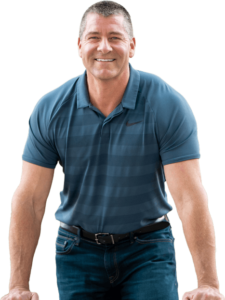
Gary Boomershine founded RealEstateInvestor.com in 2005 out of the need to scale and grow his own real estate investing and home buying business. With a
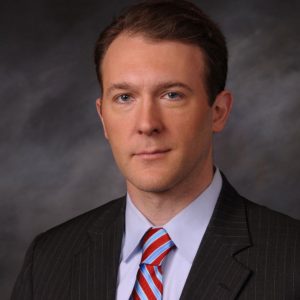
Denis O’Brien [0:37] Welcome to Episode 216, Money Tree Investing. Hey money clan, a warm welcome to the Chain of Wealth podcast. I’m your host,
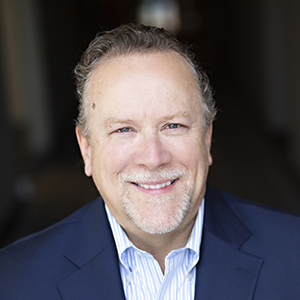
Bob Fraser is on a mission to help investors take advantage of one of the most effective and overlooked avenues of real estate investing: residential

Denis O’Brien [0:37]Welcome to Episode 213. The importance of your savings rates. Hey money clan, a very warm welcome to the Chain of Wealth podcast.
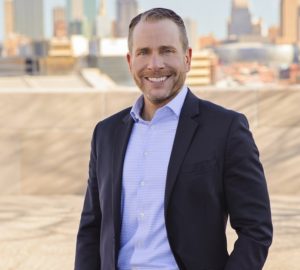
Clint Haynes is a Certified Financial Planner® and Founder of NextGen Wealth. He’s been in the financial services industry since 2001 working for both large
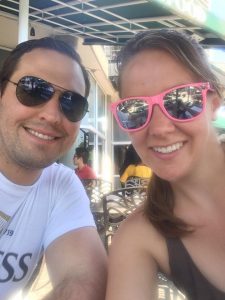
The Chain of Wealth podcast is a biweekly podcast boasting over 500,000 downloads. We interview inspirational guests about money topics. You can learn more about us here.
Connect with like minded people that are achieving their financial dreams.